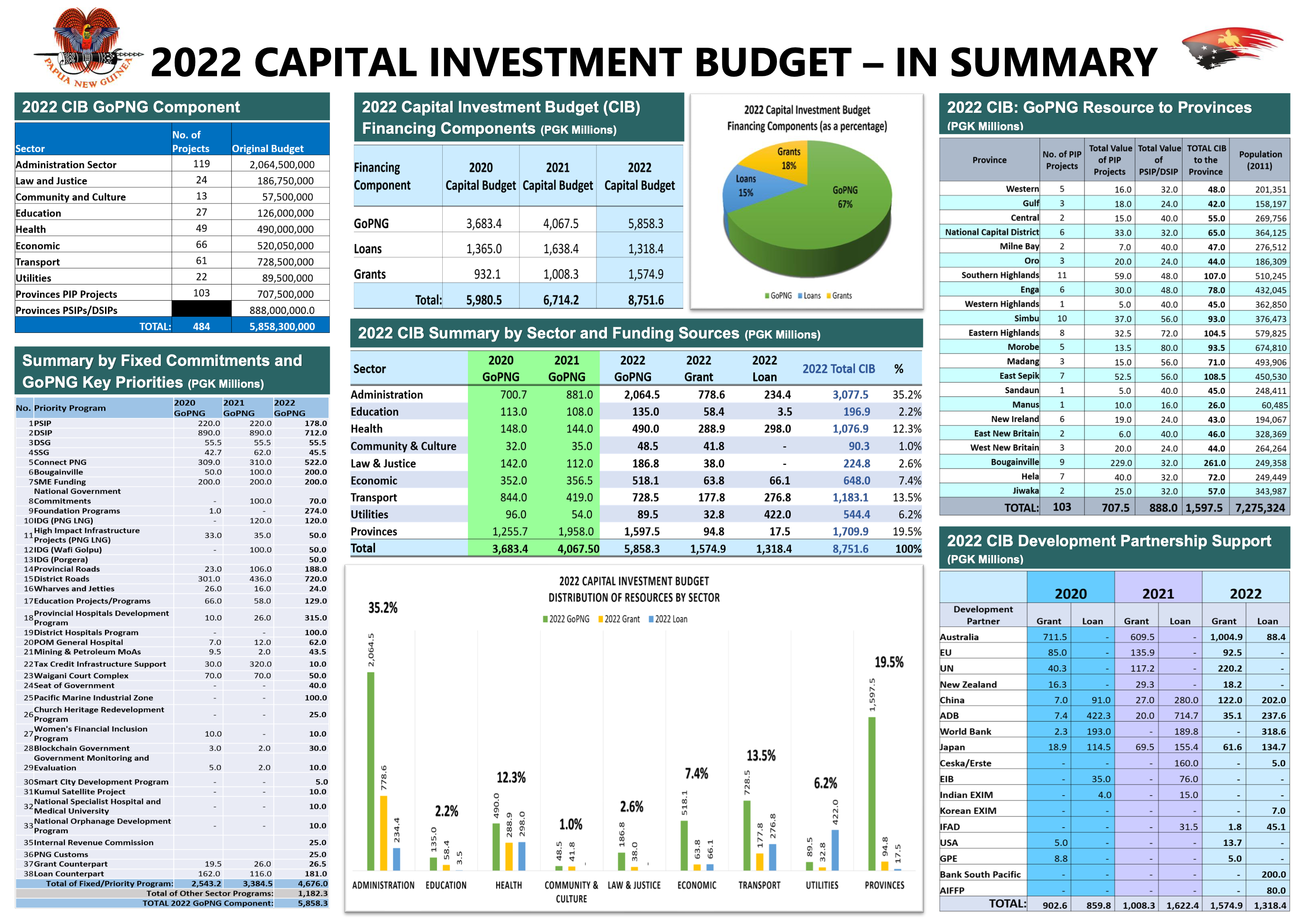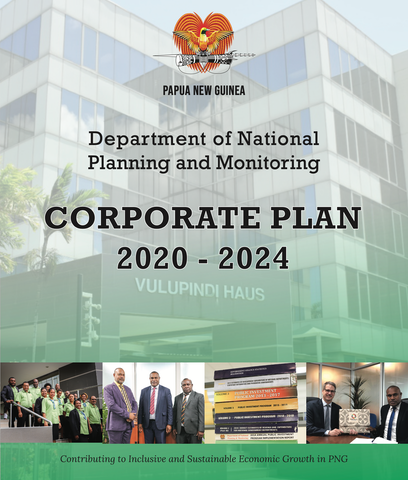Corporate Plan 2020-2024
The Department of National Planning and Monitoring Corporate Plan 2020 – 2024 is the blue print to guide the Department's operations and functions from 2020 - 2024. The Corporate Plan 2020-2024 entails key deliverables and targets with specific timelines for the department to measure its performance within the course of five years.
Since 2009, the Department did not have any officially sanctioned Corporate Plan. This is the Department's fully pledged plan to guide its performance going forward. This is the first Corporate Plan which anchors well on the Planning and Monitoring Responsibility Act, 2016.
This Plan remains central to our core business of coordinating development in the country through strategic alignments of sector plans and policies to the Government's MTDP III 2018-2022 and the Loloata Leader's Commitment in 2019. The coordination of the Public Investment Programs and Projects implementation is critical to effective service delivery to the people of Papua New Guinea. Hence, the Department's functions are integral to the overall goal of the MTDP III to achieve an 'Inclusive and Sustainable Economic Growth for Papua New Guinea' to move the economy and country forward.
The Corporate Plan will guide the DNPM to be more focused and strategic in undertaking its corporate objectives as stated below:
* To effectively plan, formulate and coordinate development planning and programming in Papua New Guinea.
* To ensure Public Investment Programs and Projects are effectively coordinated through the sectors and implemented successfully.
* Apply strong rigor to monitoring, evaluation and reporting of the Capital Investment Budgets to Government and to all our key stakeholders on the use of public funds for transparency and accountability purposes.
* Smarter and effective mobilization, coordination and management of development partner aid resources that support the MTDP III implementation.
* Improved and strong internal systems and processes, better management of human resources and wellbeing of staff, which are critical to vibrant and robust performance of our department.
* Improved database development, stakeholder engagements and consultations for better outcomes.
* Improved information and database management systems, collection and analysis



